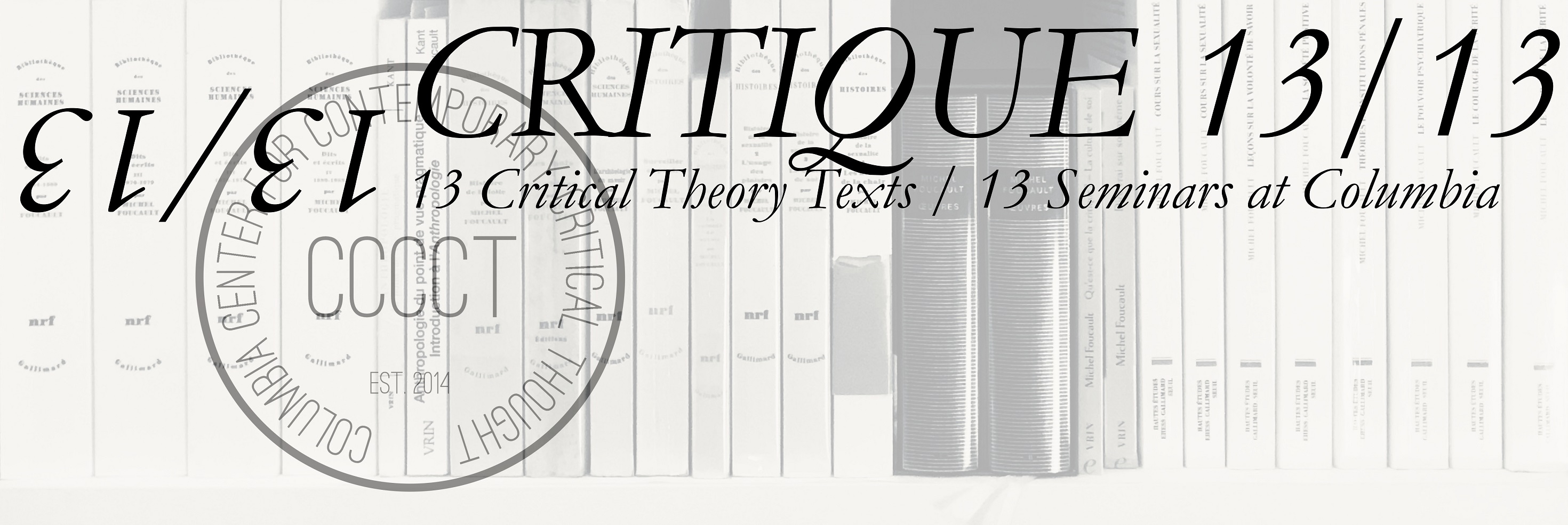By Bernard E. Harcourt
The initial project of this series of studies, exposed in The History of Sexuality, Volume I: The Will to Know (1976), was not to reconstitute the historical sequence of sexual conducts and practices, nor to analyze the ideas (scientific, religious, or philosophical) by means of which these behaviors were represented; but rather to comprehend how, in modern Western societies, there was constituted something like an “experience” of “sexuality,” this familiar notion that nevertheless does not appear before the beginning of the nineteenth century. […]
– Confessions of the Flesh, finally, will treat the experience of the flesh in the first centuries of Christianity, and of the role that the hermeneutics and the purifying deciphering of desire played.
Volume 1 The Will to Know, 224 pages.
Volume 2 The Use of Pleasures, 296 pages.
Volume 3 The Care of the Self, 288 pages.
Volume 4 The Confessions of the Flesh (forthcoming).
(From the internal loose-leaf flyer, what was called the “Prière d’insérer,” included in the original edition of The Use of Pleasures in 1984)
Thirty-four years later, the fourth and final volume of The History of Sexuality, Volume 4, Confessions of the Flesh, has published. The volume prolongs Foucault’s meticulous, painstaking archival project to dissect and expose the manner in which social, cultural, religious, and ethical practices have shaped humans during different historical periods. The volume completes, chronologically, the second and third volumes, pushing the analysis from Greek antiquity and the early Common Era philosophers, to the early Christian thinkers of the first to fifth centuries. Foucault’s archive, in this fourth volume, is the discourse of those early Christian scholars and ascetics, or what are often called the Church fathers, from early Greek thinkers such as Clement of Alexandria (c. 150-215), Origen (c. 184-253), and John Chrysostom (c. 349-407), to the early Latin fathers such as Tertullian (c. 155-222), Ambrose (c. 337-397), and John Cassian (c. 360-435), through the great Church father, Saint Augustine (354-430).
We are all familiar, by now, with the broad stroke of his analysis: whereas the ancient Greeks (circa the sixth century BCE) understood sexual relations primarily through the framework of aphrodisia, a philosophical understanding that focused on the idea of an ethical self-mastery intended to prevent the subject from getting consumed by the pleasures of sexual relations (Volume 2, L’Usage des plaisirs, The Use of Pleasure); whereas the Greek and Roman philosophers of the early Common Era (circa the first two centuries CE), especially the Stoics, conceptualized sexual relations primarily through the techniques of the self, such as the examination of conscience, the memorization of rules of austerity, practices of penitence and such (Volume 3, Le Souci de soi, The Care of the Self); and by contrast to us moderns, who invented psychoanalytic, medical, and legal frameworks to regulate our sexuality (Volume 1, La Volonté de savoir, The Will to Know); the early Christian thinkers deployed the framework of lust, flesh, and sin as a way to curb and regulate sexual relations. In the process, they instantiated entirely new ways of being, new modes of living. Stuart Elden, Nancy Luxon, Sverre Raffnsøe, Joseph Tanke and others lay this out elegantly in book reviews of the new volume.
Once more, the parallel to our project here, in Critique 13/13, should not escape you: To read texts for the purpose of understanding our present conjuncture (at least here, in the West) and formulating new modes of praxis.[1] And to help guide us in our reading and deployment of Foucault’s final volume of The History of Sexuality, we are delighted to welcome the philosopher Guillaume Le Blanc from the University of Paris—Diderot and to propose two texts to frame the discussion:
- Guillaume Le Blanc, “Why Read Confessions of the Flesh Today?” (French version here; English translation here).
- Bernard E. Harcourt, “Foucault’s Keystone: Confessions of the Flesh. How the Fourth and Final Volume of The History of Sexuality Completes Foucault’s Critique of Modern Western Societies“.
Welcome to 6/13!
Note
[1] A slight difference is important, though. In our seminar, Critique 6/13, we tackle what I consider to be a critical text—the finally published fourth volume of The History of Sexuality—in order to explore how it can shed light on our contemporary struggles. In the volume itself, Foucault read texts that are not conventionally understood as “critical” in order to explore how they shaped us. (I say “conventionally” because, on some readings, as I suggest in Critique & Praxis (forthcoming 2020), the prophetic traditions share in the critical project of changing the world to make it more equal, solidary, and socially just.) One important question, then, is whether it might be possible, some day, to return more closely to Foucault’s texts and methods to explore how his own texts shape us as contemporary subjects?
